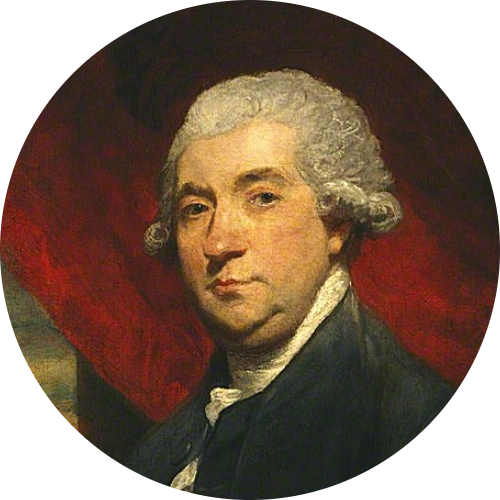Riddoch completed his academical studies at Aberdeen, and after some time as a clergyman in Perth, he became Pastor of the newly founded St. Andrew's Episcopal Church in Glasgow in 1750. A few years later, he was appointed to the larger congregation at St. Paul's Church in Aberdeen, and he stayed here until his death in 1778. He married firstly one of his congregation (name unknown to this author), who died shortly after giving birth to their first child, a girl, ca. 1759. A few years later, he married Isabella Dallas, a distant relation of James Boswell's.
Few objective details are known about his personal life, but a curious memorial printed in Samuel Clapham's Sermons, Selected and Abridged, Chiefly from Minor Authors (1803) reads as follows:
During his residence at Aberdeen, he married an amiable and accomplished young lady, one of his congregation: their affection was mutual. But his happiness was of short duration; she lived only to bring him a daughter, and left him a most afflicted husband. [...] Riddoch, for the sake of having his daughter, whom he most affectionately loved, well educated, married a second time; but, unfortunately for himself, a woman of a taste and turn of mind altogether dissimilar to his own. His daughter died about the age of seventeen. After this time he is said never to have known comfort. His circumstances, in consequence of his marriage, became embarrassed, his health declined, and he sunk, prematurely, into his grave, universally regretted, and lamented."
After Riddoch's death, his widow asked her husband's old friend Professor James Beattie to edit and publish Riddoch's sermons, and in 1782 Sermons, on several Subjects and Occasions were published in two volumes. It had not been without trouble, though, as Beattie wrote in a letter to Sir William Forbes dated April 11, 1780:
I have, since the college broke up, been hard at work upon Mr. Riddoch's manuscript sermons; but I have only got through five of them, and there are still twenty-five before me. Never did I engage in a more troublesome business. There is not a sentence, there is hardly a line, that does not need correction. This is owing partly to the extreme innacuracy of the writing, but chiefly to the peculiarity of the style; an endless string of climaxes; the unmeasurable length of the sentences; and such a profusion of superfluous words, as I have never before seen in any composition. To cure all these diseases is impossible yet, to do my old friend justice, I must confess, that the sermons have, in many places, great energy, and even eloquence, and abound in shrewd remarks, and striking sentiments. They are gloomy, indeed, and will suggest to those who never saw the author, what is really true, that, in preaching, he always had a frown on his countenance.
On August 22, 1773, Boswell and Johnson were invited for tea by Mrs Riddoch, a distant relation of Boswell's and an old flame of his, during their stay in Aberdeen. Riddoch himself was, according to Boswell, "ill and confined to his room." Although apparently not meeting Riddoch on this occasion, Johnson borrowed a volume on psalms by the French bishop Jean-Baptiste Massillon (1663-1742).
Boswell called on Riddoch on the next day, together with Prof. Thomas Gordon, and found him "a grave worthylike clergyman". In the evening, Boswell and Johnson went back and, according to Boswell, "sat near an hour at Mr Riddoch's. He could not tell distinctly how much eduation at the college here costs, which disgusted Mr Johnson. I had engaged to Mr Johnson that we should go home to the inn, and not stay supper. They pressed us, but he was resolute. I saw Mr Riddoch did not please him. He said to me, "Sir, he has no vigour in his talk."."
Riddoch's sermons are sometimes available via AbeBooks, but be aware that most copies are modern day print-on-demand editions, while the original 1782 editions are exceedingly rare. A few are printed in Clapham's Sermons, Selected and Abridged, Chiefly from Minor Authors (1803) mentioned above.
